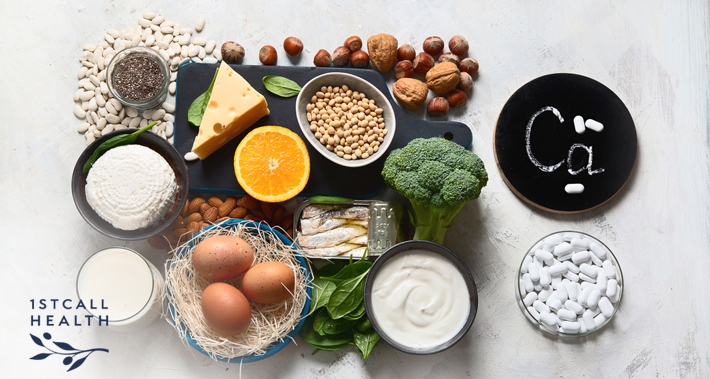
When it comes to vitamins and minerals, some have better name recognition than others.
And you probably have some idea of the benefits of calcium, because it’s got a pretty good marketing team.
You might associate it with the “Milk Mustache” ads of the 1990’s.
These ubiquitous ads featured celebrities promoted milk – and calcium – as good for your bones and for preventing osteoporosis.
But there’s so much more calcium can do for you.
And many more places to get your calcium than just through dairy products.
If you’re worried you may be at risk for osteoporosis and are thinking “it’s time to look for medical services near me”, to get things under control, you’re in the right place.
We’re a primary care clinic in DC and we want to help you understand all of the reasons to make sure you’re getting enough calcium.
Keep reading to find out more.
What Is Calcium?
Calcium is a mineral which is incredibly important for keeping your body healthy.
In fact, there’s more calcium in your body than any other mineral.
Although most of your body’s calcium is in your bones and teeth, it also serves plenty of other roles in your body.
Approximately two percent of your body weight is made up of calcium.
Dietary Sources Of Calcium
If you want to get more calcium in your diet, the first food that probably comes to mind is milk.
Most Americans do get most of their calcium from dairy, but there are better sources.
Because dairy products are high in calcium, but they’re also one of the most common sources of unhealthy fats and cholesterol.
These can increase your risk of heart disease and obesity.
As well, lactose intolerance is fairly common.
In fact, a 2017 study by Storhaug, Fosse, and Fadnes estimated that 68% of the world’s population has issues with lactose absorption.
This is most common in people of non European descent, but even 28% of Europeans are estimated to be lactose intolerant.
Other parts of dairy products can be allergens as well.
These can stomach upset, vomiting, diarrhea, gas, and sometimes more intense reactions.
But the good news is there are plenty of nondairy sources of calcium, including:
- Canned salmon
- Dried figs
- Amaranth
- Almonds
- Lentils and beans
- Fortified drinks, including soy milk and orange juice
- Rhubarb
- Sardines
- Poppy seeds
- Chia seeds
- Leafy greens, such as spinach and kale
Notice that most of those sources are plant based.
In fact, the calcium in green, leafy vegetables is absorbed through your gut twice as well as calcium from dairy.
These vegetables are also a great source of other nutrients as well, like folate, vitamin K, and antioxidants.
So if you’re a vegan, there’s no reason why you can’t get enough calcium in your diet.
What Does Calcium Deficiency Look Like?
There are a variety of different conditions linked with calcium deficiency.
These can include:
- Certain medications that block it from being absorbed
- Poor diet
- Liver, parathyroid, or kidney problems
- Vitamin D deficiency
- Magnesium deficiency
- Hormonal imbalance
- And others
People with low calcium levels are at higher risk of osteopenia (loss of bone mineral density) and osteoporosis (weakened bones).
Some of the common signs of low calcium levels include:
- Muscle cramps and spasms
- Brittle nails
- Tingling in the feet and hands
- Memory loss
- Thin skin
- Slow hair growth
- Seizures
Can You Overdose On Calcium?
There are some risks associated with taking too much calcium.
If you’re worried about getting enough calcium and are considering taking a supplement it’s important to discuss this with your healthcare provider first.
Some of the side effects of excess calcium include:
- Hypercalcemia (high levels of calcium in the blood)
- Kidney stones
- Kidney failure
- Upset stomach
- Heart palpitations
- Muscle weakness
- Bone pain
- Confusion

Top 5 Benefits Of Calcium
You know calcium is important for strong bones.
But it’s so much more than that.
Let’s have a look at some of the things calcium can do for you.
1. Your Muscles Need It To Contract And Relax
You might think of calcium as being important for your bones, but it’s also a key factor in how your muscles work.
Alongside magnesium, calcium is used for the contraction and relaxation of muscles.
When calcium binds to protein in muscles, it causes a contraction.
Conversely, muscles relax when blocked by magnesium, causing calcium to be pumped out of the muscle tissue.
2. Your Bones And Teeth Need It To Stay Strong
Calcium is a crucial ingredient in your bones and teeth.
So it stands to reason that if you don’t get enough calcium, your bone health could be at risk.
If you don’t have enough calcium, your bones can become fragile, thin, and more prone to fractures and breaks.
Low calcium levels can also result in osteoporosis, which is a loss of bone mass.
Often osteoporosis will go undetected until your bones become so fragile that you experience a fracture.
That’s why it’s so important to regularly see your healthcare provider to screen for these and other issues as you age.
3. It Can Reduce Your Risk Of Kidney Stones
At one point excess calcium was believed to be linked to kidney stones.
But it has since been found that this nutrient can actually help prevent them.
Calcium helps to lower the amount of oxalate absorbed by the bloodstream, thus decreasing the risk of developing kidney stones.
4. Your Heart Needs It To Function
Calcium is used by your heart in a few ways.
It helps keep your blood pressure at a healthy level by regulating the level of pressure in your arteries.
In addition, it’s involved with the reactions that cause your heart to contract and relax in order to pump blood throughout the body.
5. It Can Help You Maintain Your Weight
Low calcium levels may make you more likely to gain weight.
Calcium plays an important role in a healthy metabolism, which is required for keeping your weight at a stable level.
Book Your Appointment With 1stCallHealth Today
Are you worried about developing osteoporosis or bone disease?
Do you have a medical condition which affects your calcium absorption?
Have you struggled with getting enough calcium in your diet because you can’t eat dairy products?
Or, having read the symptoms of a calcium deficiency, are you worried you might be deficient yourself?
We’re 1stCallHealth and we can help.
We offer primary care services to help you navigate questions about nutrition, chronic illness, bone health, and lots more.
Book your appointment with us today.
1stCallHEALTH
1331 H St NW Ste 200,
Washington, DC 20005
(202) 590-0009
– https://goo.gl/maps/MVhjkz2jqynWpsgo6
1stCallHEALTH provides affordable access to primary care services. We believe that everyone deserves affordable, high quality primary care.
Our vision is to challenge the status quo, focus on the individual, and empower personal control to change the way we think about healthcare.




